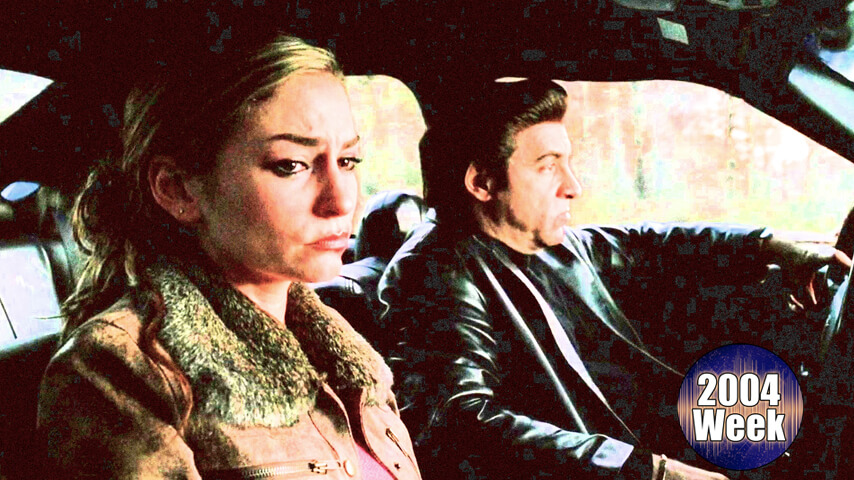In 2004, watching the good stuff wasn’t so easy
Some of us went to great, ridiculous lengths in the pre-streaming era
The Sopranos' "Long Term Parking" (Screenshot: Max)
Waiting for the man. The guy with the thing. What Friday and Saturday, and, for that matter, Thursday nights of college had become about: where the party was, where the afterparty was, and, in this case, who was holding. It was nothing more nefarious or contraband than a videotape, actually, but one that, in May 2004, assumed the allure of something forbidden, like whatever Nicolas Cage was going on about in 8mm.
Back then, none of us had cable. But a buddy had a connect: His parents had HBO, an almost inconceivable virtue possession of the bourgeois, one necessitating a call to the cable company or possibly one of those plates screwed onto the roof, pointing at the stars. The penultimate episode of what we didn’t know then was the penultimate season of The Sopranos, which premiered just last Sunday, had been recorded and was being pirated across state lines for us to watch as we sat in a smoky room and drank and waited in anticipation.
It sounds a bit unbelievable in retrospect, but this was the type of blackmarket suavity required, the lengths some of us had to go to watch the good stuff in the early aughts. Before we could have everything everywhere all at once thanks to streaming, before coeds could use their parents’ passwords and get whatever they wanted, be it a just-dropped episode of Industry or a masterful Columbo from more than 50 years ago, cued up just like that, you had to get creative. A friend of a friend maybe hosted a Sunday-night watch party that you could finagle your way into, but, to quote the moody man in the white bathrobe, “Fuck that.”
Today, we wonder why The Bear releases a full season at once, why we must be deprived of all of that week-to-week anticipation building as if it’s irksome, as if we can’t control ourselves and spread out our viewing. Ah, to have been so lucky. And even if you were able to nab a bootleg back then, your TV/VHS/DVD setup and its mishmash of cords could leave you feeling like Tony, after A.J. and his friends messed up the connection, struggling with the input, going to the fallback dad move of pulling out the remote batteries and putting them back in.
